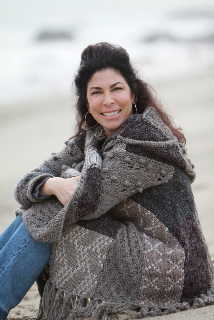 By Stacey Gualandi/July 2, 2012
By Stacey Gualandi/July 2, 2012
Remember the song “Don’t Worry…Be Happy?” Easier said then done, right? Positive psychology coach Lisa Kamen says not so fast. This author, filmmaker and “happiness expert” says it is possible to move past life’s obstacles in order to find one’s inner happy face. She should know. She’s survived foreclosure, divorce and an uncertain future.
“I do wholeheartedly believe that everyone has the ability to become happier.”
Through her company Harvesting Happiness, she has dedicated herself to helping anyone who has lost their smile–including soldiers with post-traumatic stress–through coaching, radio shows, her documentaries and the new book Are We Happy Yet? Eight Keys to Unlocking a Joyful Life.
To find out how to be happy, even on a day when everything makes you unhappy, I reached out to Lisa to learn more about her own personal journey as well as why happiness is an inside job…
EYE: What does “happy” mean…?
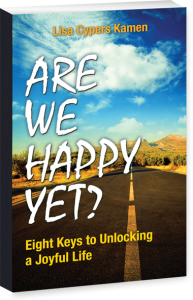 LISA: I like to define true happiness as a dynamic state of being that comes from the alignment of our passion, purpose, place and meaning in the world. When we are dialed into life, turned on by what we are doing and contributing, we are thriving, flourishing and not necessarily focused in on our problems although they exist.
LISA: I like to define true happiness as a dynamic state of being that comes from the alignment of our passion, purpose, place and meaning in the world. When we are dialed into life, turned on by what we are doing and contributing, we are thriving, flourishing and not necessarily focused in on our problems although they exist.
EYE: When is someone truly happy?
LISA: First of all, it is important to clear the air concerning the ubiquitous and somewhat annoying yellow smiley face that most of us use daily in our email and text communications often representing instant gratification or pleasure.
Authentic or sustainable happiness means different things to different people and is usually created by a few universal core values. The science of happiness embodies positive psychology and an approach to life that focuses more on what is good than what is bad and more on how to overcome obstacles to achieve goals than relishing in why things and feelings happen.
An authentically happy person fully embraces all parts of life including the suffering and trauma that go along with the human experience. In fact, resilient people who present a strong sense of hope, optimism and belief in life and themselves tend to be happier.
There is not an emotionally healthy woman or man alive that would not say that true and sustainable joy comes from satisfying social relationships.
EYE: How is our society/culture doing right now when it comes to happiness?
LISA: Any society who bases its collective ethos on materialism and acquisition is doomed for disappointment and eventual economic disaster. We have witnessed this in America during the past few years and are seeing the global fallout across Europe and other continents of Gordon Gecko’s mantra, “Greed is Good,” in the film “Wall Street.”
So I would say that we are being given a fabulous opportunity to reframe the race for the biggest, best, most expensive, prettiest and smartest prize. We once coveted financial capital, and many of us now realize that it is the social and emotional intelligence that makes us healthier, wealthier and wiser.
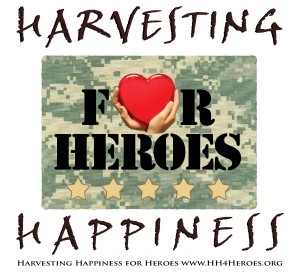 EYE: Do you think that everyone can be happy?
EYE: Do you think that everyone can be happy?
LISA: Yes! I do wholeheartedly believe that everyone has the ability to become happier. Can or will everybody be happy? No, simply because they make choices that do not support their overall well-being.
The most favorite tagline in my business is “Happiness is an inside job.” These words are powerful because they validate the concept of self-mastery and responsibility for our own lives and ultimate joy.
Bad things happen to happy people and happy things happen to bad people. How we relate to the issues that arise in life dictates our ability to survive the curve balls that are thrown by events or thrive in spite of them.
Think of it this way. Each of us has the absolute freedom to be happy and at the very same time, the liberty to be miserable. Abraham Lincoln once said that “we are as happy as we choose to be, so why not choose happiness?”
“The next time you are not feeling happy then go out in the world and create something happy, if not for yourself then for someone else.”
EYE: How did you achieve total happiness? I imagine one can’t help others until they help themselves find a happy place first. You describe yourself as a reformed trophy wife…
LISA: I would say that I evolved into a well-rounded and happy person. Total 100% happiness is a myth just as total 100% sadness is a manufactured story. Human nature is not absolute. We are changeable creatures and fickle as the weather.
It’s true. I am a happily reformed trophy wife who married a wealthy man who seemingly had all the material trappings to provide me the storybook life society told me I should aspire to possess including homes, cars, jewelry, social status, travel and so on and so on.
And yet what was missing was the deep soulful connection with a partner who shared an aligned vision of what happiness and wholeheartedness looks like. There is some truth to what they say that, “If mama ain’t happy then nobody’s happy.”
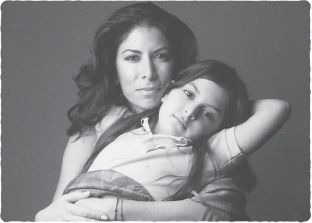
EYE: What was the turning point (“that ignited a fire in your own heart”) that led you to help others harvest happiness?
LISA: I’ve had a couple of profound turning points that have shaped who I am today. The first came in 2005 when I had the great fortune of returning to graduate school in my early forties to become a psychologist.
My children were in elementary school, my marriage was shaky and my intuition told me I needed to use the tools and resources of my abundant life to create the passion, purpose, place and meaning that I mentioned earlier. I needed to decide how I was going to show up for life.
“I chose to explore, dissect, repackage and teach the simple concepts of happiness through filmmaking…”
During this period, I went bicycling in Northern India to visit a girl’s school my family has supported for years. It was on that trip that I discovered that happiness is not an illusion. It knows no economic boundaries and certainly is not wrapped in the latest designer handbag.
EYE: What was it about India that so inspired you?
LISA: The people of the country possess the magic lights of joy in their eyes, regardless of their external and poverty-stricken circumstance. Eureka! That’s right!!
I chose to explore, dissect, repackage and teach the simple concepts of happiness through filmmaking as my graduate studies thesis (“A Passage Through India…Diamonds in the Rough”) so that anyone could understand that happiness truly is an inside job and to harvest more of it through training.
Upon graduating with my master’s degree in 2007, I co-produced a documentary film (excerpt above) entitled “H-Factor…Where Is Your Heart?” with my then nine-year-old daughter, Kayla. I had spent the previous ten years as a philanthropic stay-at-home wife, mother and domestic engineer. Life was about to change on a dime.
EYE: What happened to turn your life around?
LISA: In 2008 my marriage continued to disintegrate, the economy tanked and I found myself in disastrous economic, domestic and emotional free-fall. Thunk! There I was, me with me, embroiled in the perfect dramatic illustration of all that could possibly go wrong.
Life was not exactly like a bowl of cherries or a box of chocolates, but I certainly was in the pits. I began writing blogs, books, “to-do” lists and visions that supported me, my children and the navigation of my personal Titanic to a happier place.
EYE: At this time you began to get involved with the issue of PTSD…
LISA: Yes, I began to read countless reports in the media about hundreds of thousands of military personnel who were returning home and suffering from the invisible wounds of war with Post-Traumatic Stress Disorder (PTSD), Traumatic Brain Injury (TBI), Military Sexual Assault (MSA) and a whole host of other combat trauma and post-deployment reintegration-related challenges.
With fire in my belly and passion in my heart, I took an educated leap of faith.
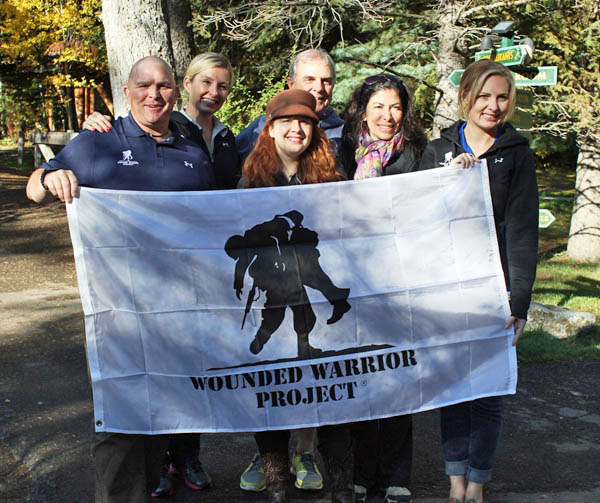
EYE: Why did you start HH4H or Harvesting Happiness for Heroes and why is the suicide rate so high for returning troops?
LISA: I further learned about the stigma often associated with seeking and receiving mental health care and how the homicide, suicide, domestic violence and addiction rates of our returning veterans will exceed the number of men and women killed in combat during the wars in both Iraq and Afghanistan.
My focus became to serve those who have served and help these courageous military families reclaim their lives and smiles after the war experience. Not only was I committing to serve, I was healing my own personal trauma through it.
EYE: Did you have any experience in this field?
LISA: I had no military experience. From that moment on I got really busy training myself about military life and Post-Traumatic Stress. I had a theory that positive psychology coaching along with other complementary disciplines, such as mindfulness training and yoga programmed in a non-clinical environment, could have just as much efficacy if not more than a traditional medical setting in combat trauma healing and recovery.
I also firmly believe that trauma after war is a normal response to stress overload not a disorder or disease.
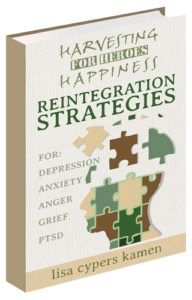 EYE: What do you do for these veterans and their families?
EYE: What do you do for these veterans and their families?
LISA: We have been busy creating and deploying curriculum through weekend retreat workshops, one-on-one cyber coaching, weekly live coaching circles and our online community programming will launch soon. All HH4Heroes programming is at no cost to the Warrior family.
We are able to give away our work through the generous support of sponsors, partners, donors, grants and our Shop Happy… Consumerism for a Cause boutique on our website.
Our vets self-report an increase of 25% in their overall well-being (happiness) levels after 12 weekly, 90-minute sessions that help cultivate greater self awareness, self esteem, goals, a platform for happiness in the new post-deployment normal and tools for greater self-mastery while adapting warrior skills to civilian life.
Serving others through volunteering or giving of one’s self through heartfelt work is another great way to become instantly happier. Science identifies those feel-good feelings when we help another person as the “Helper’s High” which makes us feel giddy and delighted as a result.
“I am a huge fan of focusing on what is right with life and minimizing what is wrong.”
EYE: How important is recognizing and acknowledging gratitude?
LISA: Gratitude is one of the simplest mood changing interventions on the planet. I love coaching people to consciously become aware of at least three things for which they are grateful on a daily basis. In our programming, we provide “Gratitude Journals” and give gratitude tracking as homework.
Life is filled with lots of little things that bring us pleasure, and it is important to capture and savor them. The process of acknowledging and giving thanks stimulates an elevated mood while de-emphasizing, at least temporarily, all the negative garbage that goes on in the world.

EYE: How meaningful was it to have your children with you on your film journey?
LISA: The purpose of including Kayla and to a much lesser degree my son, Ary – who was in kindergarten at the time and worked “security” on the set – was to teach my kids where true and lasting happiness abides.
I wanted them to understand that joy does not come from stuff, and the world is not always white and affluent. In fact, it was even more important to me for them to see just how abundant our circumstances were at the time and that we were the minority. At nine-years-old, my daughter shared that her happiness came from shopping and chocolate.
“I’ve learned that true joy is not for the faint of heart…”
EYE: What have you learned about yourself, and who you really are?
LISA: I’ve learned just how strong, powerful, resilient and present I must be in order to live fully, loudly and happily. I’ve learned that true joy is not for the faint of heart, and that in order to be happy, I must be willing to face adversity, discomfort and tragedy with grace and not be defined by it.
I’ve learned that I have a big voice and I use it well to champion and facilitate greater life satisfaction and well-being for others. Happiness is an equal opportunity emotion.
EYE: Complete this sentence: “The world will be a better place when……”
LISA: …each of us takes full responsibility for our own choices and self-mastery while desiring and valuing the same in others.
EYE: Thanks, Lisa, for showing us how easy it is to be happy and for all the work you do on behalf of our troops.
TWITTER: @LisaKamen
FACEBOOK: HarvestingHappiness


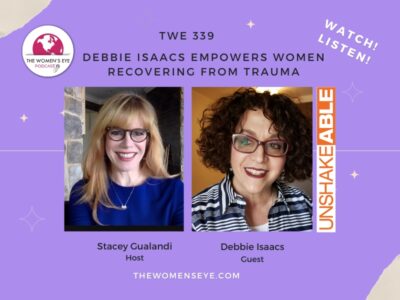
Leave a Reply